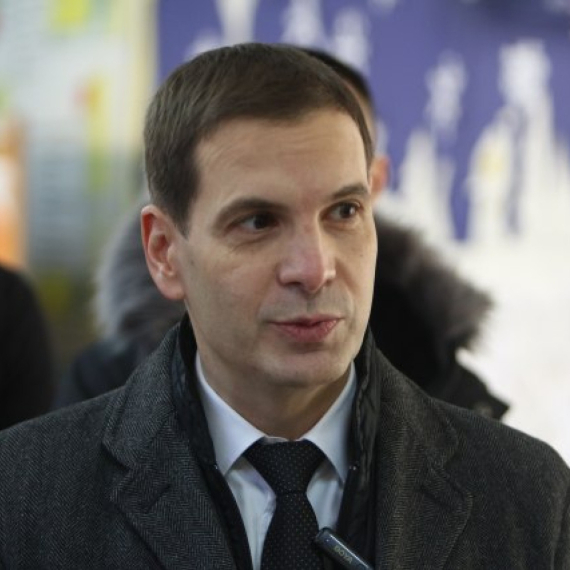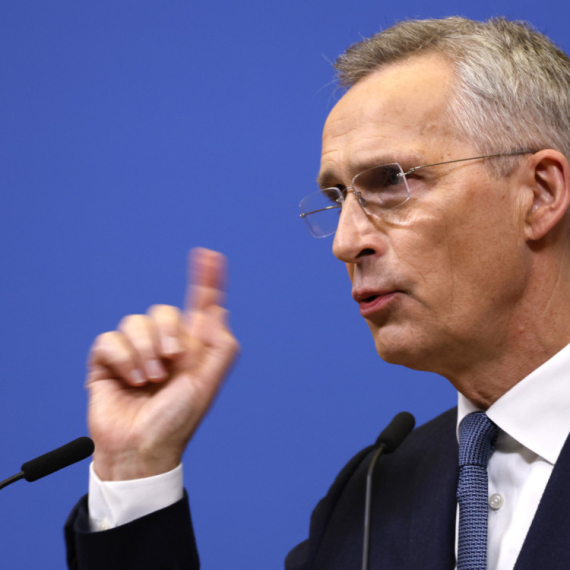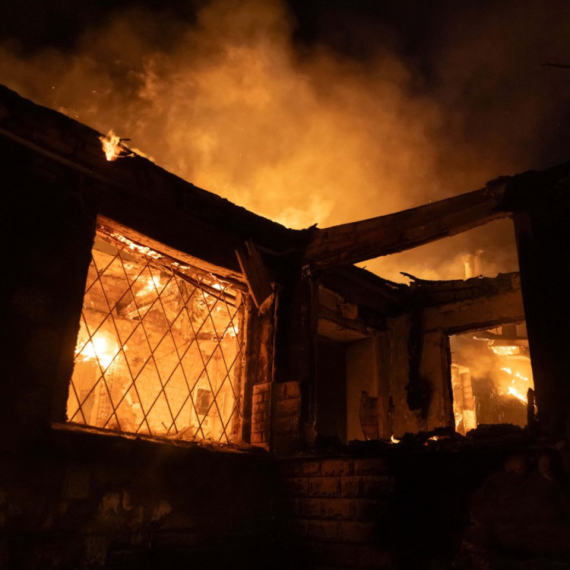Russia-NATO talks to focus on missile shield, CFE, Kosovo
Missile defense, arms control and Kosovo will dominate a Russia-NATO meeting in Romania on Friday.
Thursday, 03.04.2008.
12:28

Missile defense, arms control and Kosovo will dominate a Russia-NATO meeting in Romania on Friday. The meeting will be attended by Russia's outgoing president Vladimir Putin, a Kremlin aide said on Thursday. Russia-NATO talks to focus on missile shield, CFE, Kosovo Sergei Prikhodko, who will accompany Putin to Bucharest along with the foreign and defense ministers later today, said those issues, along with the western military alliance's ongoing expansion, have hampered cooperation between Russia and NATO members. "NATO's claims to a global security role, to activities outside its geographical zone of responsibility and traditional spheres, including in energy and cyber security, and unclear criteria for the use of force and relations with the UN Security Council, have added a great deal unpredictability to our cooperation," Prikhodko said. NATO's expansion and Washington's plans to deploy missile defense elements in Central Europe have angered Moscow, and plunged its relations with Western states to a post-Cold War low. Russia treats a planned missile base in Poland and a radar in the Czech Republic as a direct threat to its security and has rejected Washington's assurances that they were designed as protection against Iran and other Middle East states. Moscow is currently studying Washington's proposals to ease its missile defense concerns. Putin and George W. Bush are expected to meet on the sidelines of the NATO summit and at the Russian leader's Black Sea villa later this month to discuss cooperation in missile defense and arms control, in what could be their last meetings as presidents. Putin steps down next month and Bush in January 2009. Security concerns prompted Russia to impose a unilateral moratorium on the Conventional Forces in Europe (CFE) treaty in December 2007. NATO has since urged Moscow to consider United States proposals on the arms reduction pact, warning that its moratorium could undermine European security. Kosovo's declaration of independence from Serbia is another irritant in relations between NATO and Russia, which unlike most of the bloc's members that recognized 'the newest state' calls the secession illegitimate and a dangerous precedent. Russian Foreign Minister Sergei Lavrov recently pledged Moscow would "continue supporting the Serbs." And Prikhodko predicted more conflicts in Kosovo - a UN protectorate since the 1999 NATO bombings that ended clashes between Serbs and Albanians - as it moves to introduce a state language, passports and other "attributes of statehood."
Russia-NATO talks to focus on missile shield, CFE, Kosovo
Sergei Prikhodko, who will accompany Putin to Bucharest along with the foreign and defense ministers later today, said those issues, along with the western military alliance's ongoing expansion, have hampered cooperation between Russia and NATO members."NATO's claims to a global security role, to activities outside its geographical zone of responsibility and traditional spheres, including in energy and cyber security, and unclear criteria for the use of force and relations with the UN Security Council, have added a great deal unpredictability to our cooperation," Prikhodko said.
NATO's expansion and Washington's plans to deploy missile defense elements in Central Europe have angered Moscow, and plunged its relations with Western states to a post-Cold War low.
Russia treats a planned missile base in Poland and a radar in the Czech Republic as a direct threat to its security and has rejected Washington's assurances that they were designed as protection against Iran and other Middle East states.
Moscow is currently studying Washington's proposals to ease its missile defense concerns. Putin and George W. Bush are expected to meet on the sidelines of the NATO summit and at the Russian leader's Black Sea villa later this month to discuss cooperation in missile defense and arms control, in what could be their last meetings as presidents. Putin steps down next month and Bush in January 2009.
Security concerns prompted Russia to impose a unilateral moratorium on the Conventional Forces in Europe (CFE) treaty in December 2007. NATO has since urged Moscow to consider United States proposals on the arms reduction pact, warning that its moratorium could undermine European security.
Kosovo's declaration of independence from Serbia is another irritant in relations between NATO and Russia, which unlike most of the bloc's members that recognized 'the newest state' calls the secession illegitimate and a dangerous precedent.
Russian Foreign Minister Sergei Lavrov recently pledged Moscow would "continue supporting the Serbs." And Prikhodko predicted more conflicts in Kosovo - a UN protectorate since the 1999 NATO bombings that ended clashes between Serbs and Albanians - as it moves to introduce a state language, passports and other "attributes of statehood."































Komentari 0